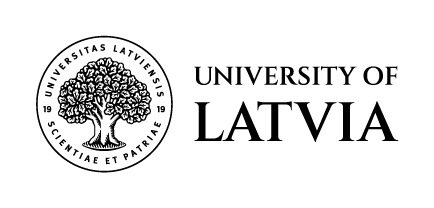Editorial
Abstract
During the beautifully snowy days of December 2023, we are preparing the second issue of this year’s journal for publication. This issue is almost entirely devoted to the historical problems of the first half of the 20th century: developments in society and the armed forces during the Latvian War of Independence, the ideas gaining momentum amongst the ethnic minorities in Latvia in interwar period, and also international trade. We present four scholarly articles and several reviews of recent research.
In his article, Professor of the University of Latvia Ēriks Jēkabsons discusses at length the activities of Herbert Adolphus Watson, an unofficial representative of the British Foreign Office in Latvia during the first half of the War of Independence, from November 1918 to the summer of 1919 – a time when hostilities were active and conditions in Latvia particularly difficult. The author traces the circumstances of Grant-Watson’s arrival and endeavours in Latvia, providing a broad insight into his perception of the events in Latvia at the time. Grant-Watson’s reports on the situation in Latvia provide a wealth of information on the domestic political situation, public sentiment, political and military developments in Latvia, as well as Latvia’s international relations, particularly with Great Britain.
The same period, 1918–1920, is also addressed in the next article, a study by Estonian researcher Toivo Kikkas on the surveillance reports compiled by the political departments of the Red Army’s national units, also called political summaries – politsvodki. The author analyses the instructions for drafting surveillance reports, the implementation of these instructions and the content of the reports, i.e. what was actually reported by the political departments of the Estonian and Latvian national units of the Red Army.
In this issue of the journal, we continue our tradition of publishing one article based on a recently defended master’s thesis. In this issue, it is an article by Milana Drugoveiko on the political thought of the Belarusian intelligentsia in Latvia in the period 1920–1934. Based on the example of the Belarusian activist Konstantin Jezovitov, the author describes the main political ideas of the Belarusian minority in Latvia in the interwar period, the attitude of Belarusians towards the Latvian state and its minority policy.
The study by Romanian scholar Andreea Dahlquist, on the other hand, focuses on international trade during the Second World War, analysing the trade relations linking two seemingly very distant and unrelated countries, namely, Romania and Sweden, between 1939 and 1944. Tracing the development of economic relations connecting Sweden and Romania, and the obstacles thereof, the author concludes that it was the war that prompted the two countries to establish closer economic cooperation. Although trade between the two countries was relatively restricted in volume, its significance lay precisely in the types of merchandise exchanged, with both sides gaining access to the goods and raw materials that were of key importance to each of them.
The journal concludes with reviews of several books: a collection of documents on the final phase of the War of Independence by Professor Ē. Jēkabsons; a monograph on political activities in exile written by the author of these lines, as well as a study dedicated to the history of Eastern Christianity in the region, published in Poland.
Published
Issue
Section
License
Copyright (c) 2023 University of Latvia

This work is licensed under a Creative Commons Attribution-NonCommercial 4.0 International License.


